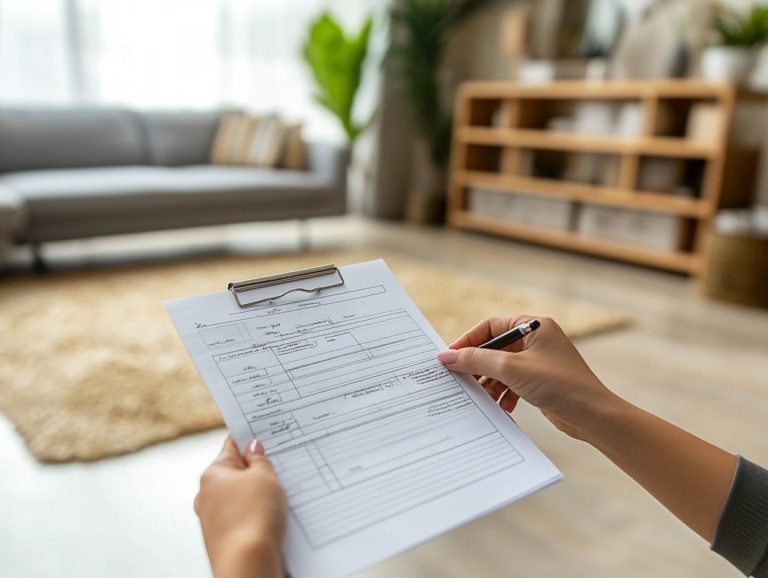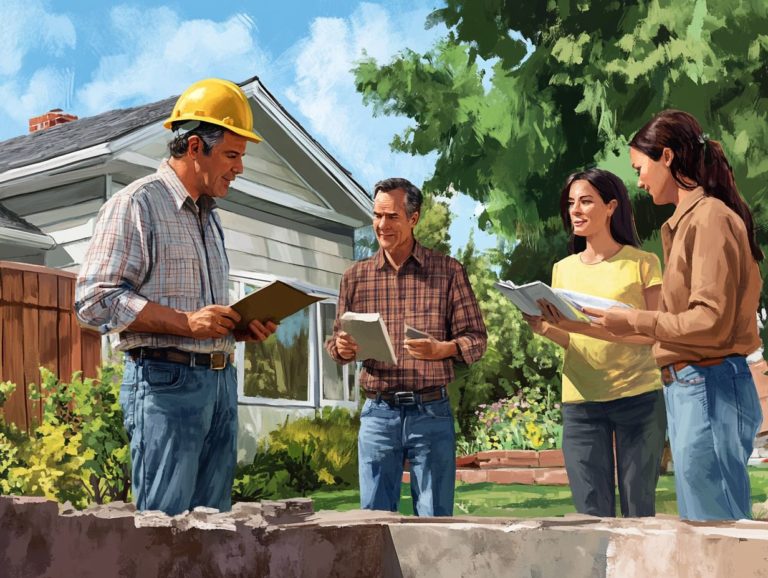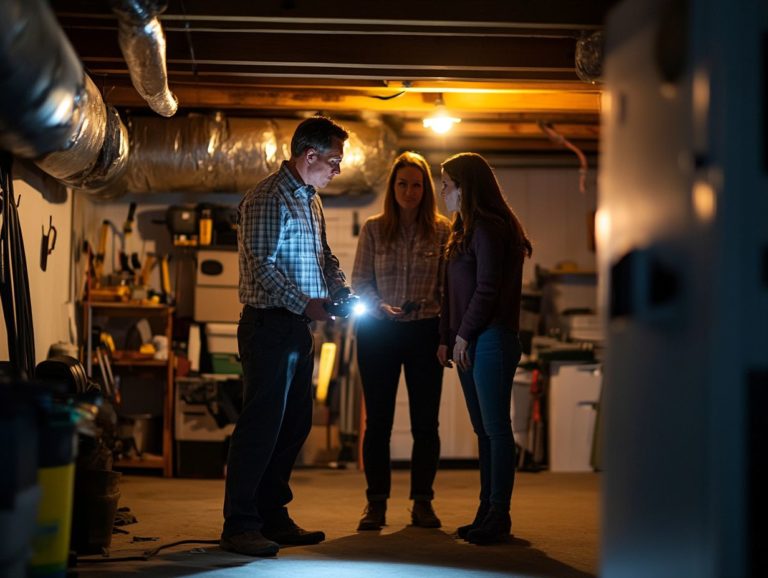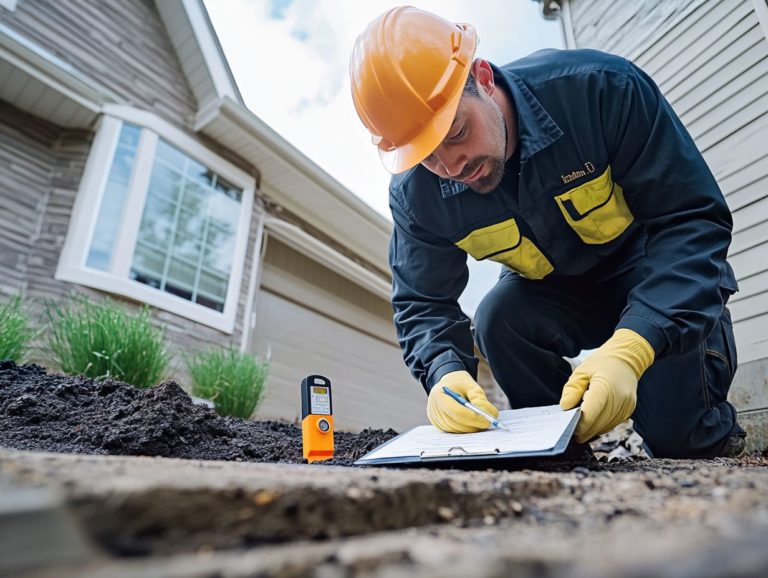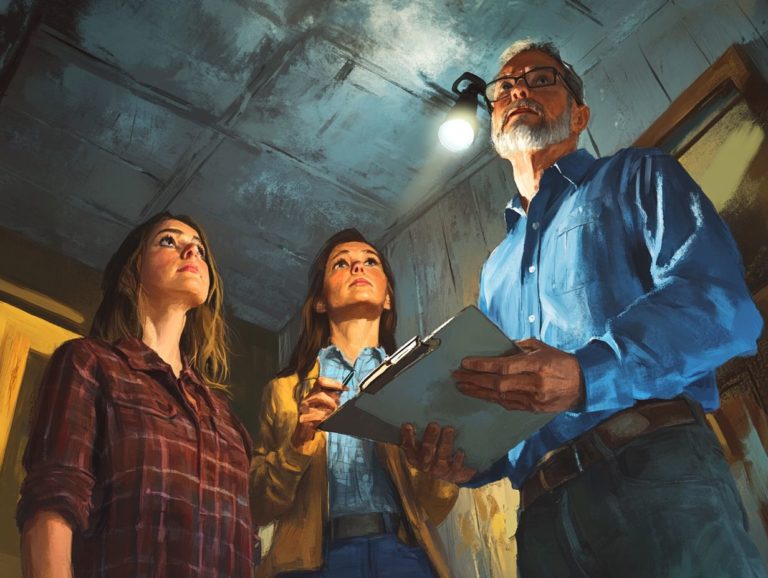The Benefits of Home Inspections for Buyers
Buying a home is one of the most significant investments you will ever make. A home inspection is an essential part of that journey.
This article delves into the importance of home inspections for buyers. It emphasizes the risks associated with skipping this crucial step.
Discover what to expect during the inspection process, common issues that may arise, and how to leverage the inspection results during negotiations. You will also find valuable tips for selecting a reliable home inspector, empowering you to make an informed decision.
Contents
- Key Takeaways:
- Why Home Inspections are Important for Buyers
- What to Expect During a Home Inspection
- Common Issues Found During Home Inspections
- How to Use Home Inspection Results
- Tips for Choosing a Reliable Home Inspector
- Frequently Asked Questions
- What is a home inspection and why is it important for buyers?
- What are the benefits of getting a home inspection for buyers?
- Who typically pays for a home inspection?
- What should buyers expect during a home inspection?
- Can a home inspection uncover all potential problems with a property?
- Is a home inspection necessary for new construction homes?
Key Takeaways:
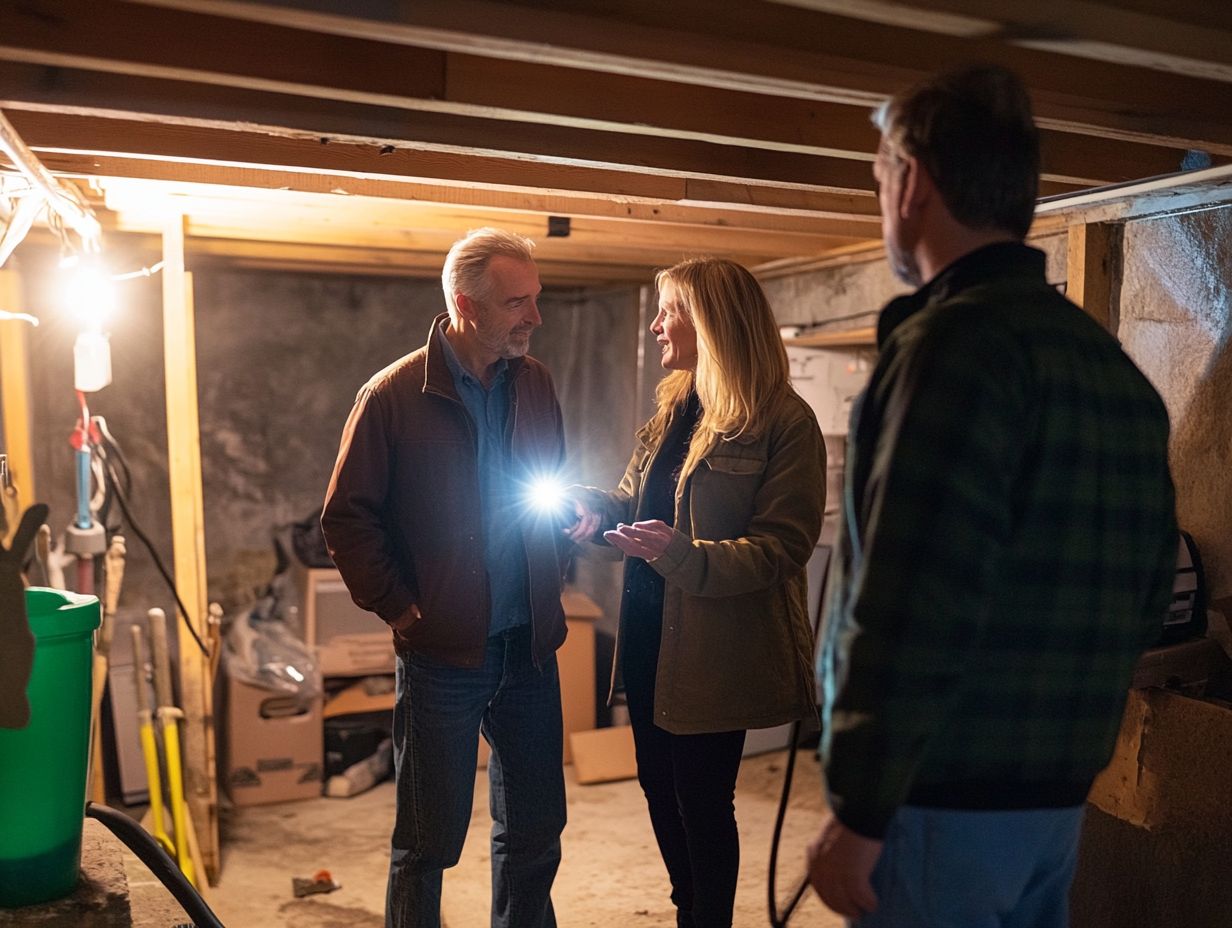
Home inspections reveal potential risks and issues in a property.
Skipping one can lead to costly surprises down the road.
Home inspection results can be used to negotiate repairs or adjust the offer price, highlighting the importance of home inspections for property buyers and making it a valuable tool for buyers.
What is a Home Inspection?
A home inspection is your essential gateway into understanding a property’s true condition. It is conducted by a qualified home inspector.
This thorough review evaluates various systems and components, such as the electrical system, plumbing, the structure of the house, and heating, ventilation, and air conditioning systems. This ensures that you, as a potential buyer, are fully aware of any significant issues before committing to your home purchase.
This process isn’t just beneficial for you; it also safeguards the seller’s interests by identifying major problems, highlighting the role of home inspections for first-time buyers that could surface during the closing process.
During this detailed assessment, trained professionals meticulously examine everything from roofing and insulation to the overall safety features of the home. Working closely with real estate agents, the inspector plays a crucial role in guiding you through the complexities of property evaluations.
Organizations like the American Society of Home Inspectors set high standards, ensuring reliable inspections. By fostering trust and ensuring quality service, these associations highlight the critical role home inspections play in real estate transactions, ultimately enabling you to make more informed decisions.
Why Home Inspections are Important for Buyers
Home inspections are essential for you as a buyer, providing crucial insights into the condition of a property.
This enables you to make informed decisions during the home purchase process, including negotiating with sellers based on the benefits of a seller’s home inspection as detailed in the inspection report.
Understanding the Risks of Skipping a Home Inspection
Don’t risk your future! Skipping a home inspection can expose you to hidden dangers.
Unseen mold growth lurking in hidden corners can pose serious health hazards, potentially racking up thousands in remediation costs. Pests like termites or rodents may quietly undermine your home s structure, inflicting considerable damage before you even notice.
Structural issues such as foundation cracks or roof leaks can escalate into costly repairs if they aren t identified early on.
This is where the expertise of buyers’ agents becomes invaluable. They can guide you through understanding these risks, ensuring you are well-informed and ready to make the best decision for your future.
What to Expect During a Home Inspection
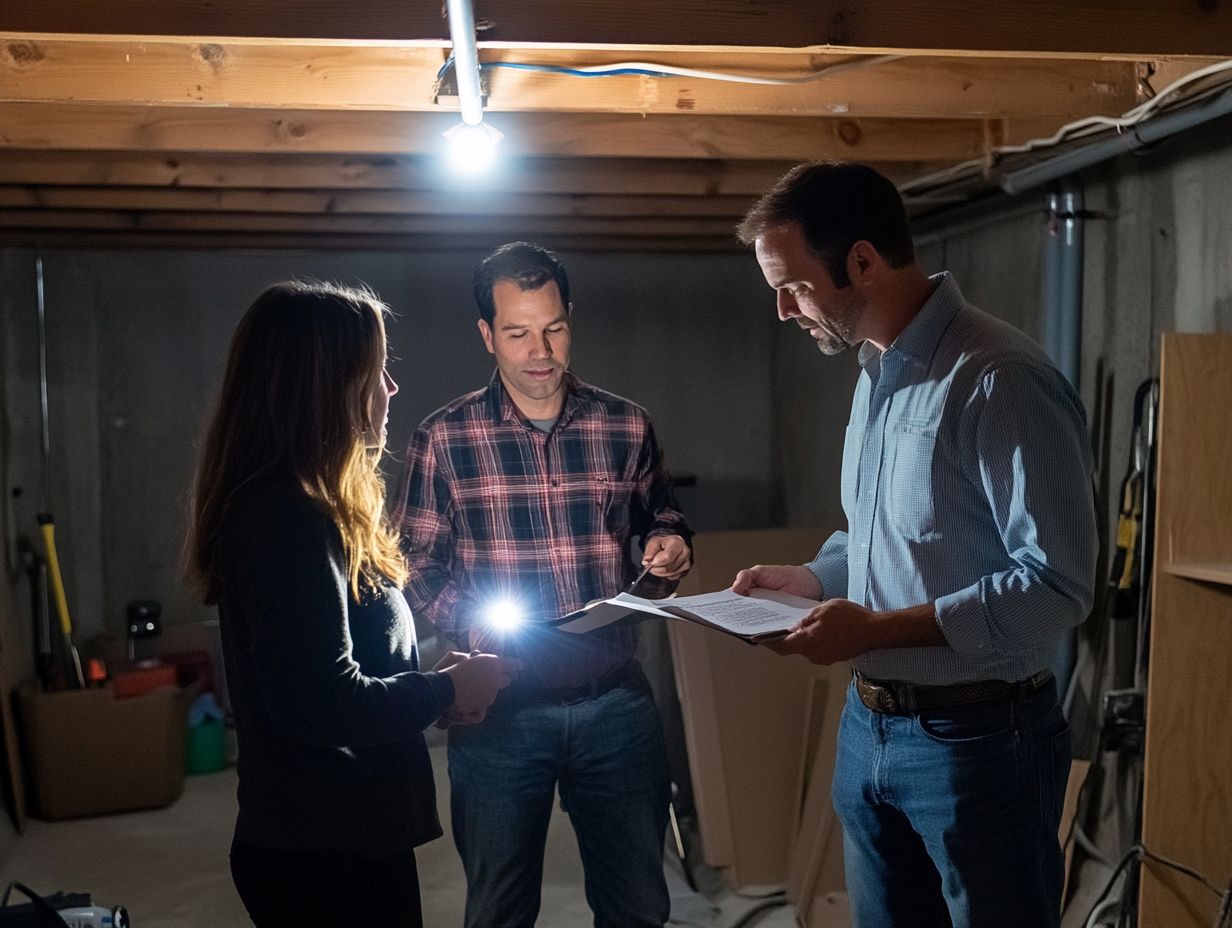
During a home inspection, you can anticipate a thorough examination conducted by a qualified home inspector. They will meticulously assess various aspects of the property, such as the electrical system, plumbing, and heating, ventilation, and air conditioning systems.
This essential information can profoundly influence the closing process of your home purchase. It ensures you make informed decisions every step of the way.
Don’t forget to schedule your home inspection to protect your investment!
The Inspection Process and What is Checked
The inspection process entails a thorough evaluation carried out by a certified home inspector. They meticulously examine various systems of the property, including the electrical system, plumbing, heating, ventilation, and air conditioning (HVAC), and structural integrity. All findings are captured in a detailed inspection report that highlights any significant issues requiring your attention.
During this careful assessment, the inspector scrutinizes the HVAC systems. This involves evaluating the efficiency of heating and cooling units, checking for signs of wear or malfunction, and ensuring all components adhere to safety standards.
Structural concerns are assessed through visual inspections of the foundation, walls, and roof. This allows for the identification of any damage or instability. The plumbing systems are examined for leaks and corrosion, confirming that the property s water supply and waste disposal operate optimally.
Every system receives not just a visual inspection but also rigorous testing where feasible. A variety of tools and techniques provide an accurate overview of the home s condition. This thorough inspection keeps you informed about your home s condition, enabling you to make educated decisions moving forward.
Common Issues Found During Home Inspections
During home inspections, you may encounter various issues that can range from minor concerns to major problems. These can include safety risks associated with mold, pests, and malfunctioning electrical systems.
Such issues carry serious implications for both buyers and sellers navigating the significant event of home purchasing.
Potential Problems and Red Flags to Look Out For
When conducting a home inspection, keep an eye out for potential problems and red flags, such as signs of water damage, faulty wiring, or poor insulation. These issues can pose safety risks and may significantly impact your future home insurance options.
Being aware of these concerns is essential as they affect the immediate safety of the residents and carry long-term implications for the property’s value. For instance, water damage can lead to mold growth, presenting health risks and potentially resulting in higher home insurance premiums or worse, denial of coverage.
Faulty wiring increases the risk of electrical fires, jeopardizing safety and complicating your insurance situation. Additionally, poor insulation can lead to energy inefficiency, driving up utility costs and raising concerns among insurers regarding the property’s condition.
Spotting these red flags now can save you from costly surprises later!
How to Use Home Inspection Results
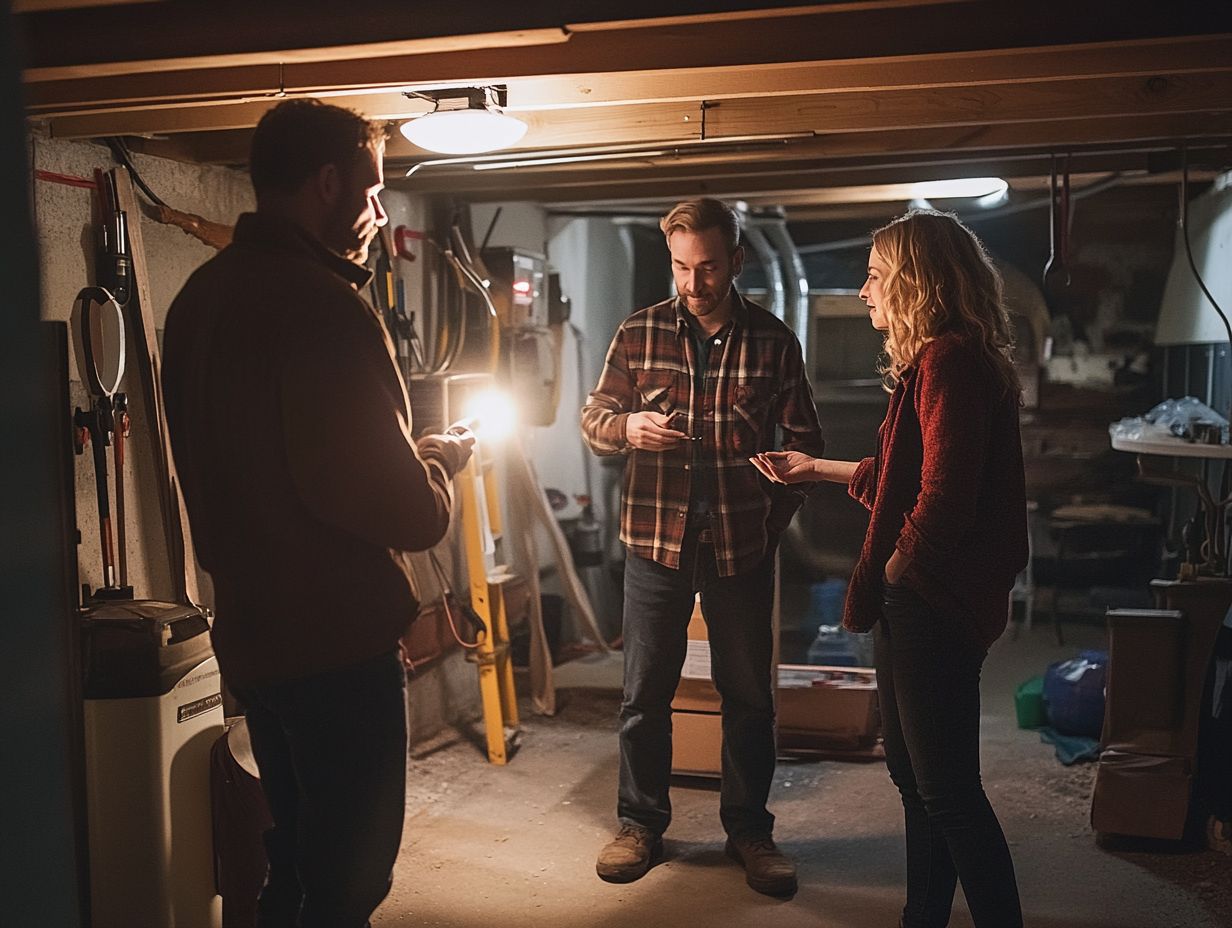
Once the home inspection is complete, the inspection report becomes an essential asset for you as a buyer in negotiations with the seller. It allows you to address any concerns that arose during the inspection process, potentially leading to a home inspection contingency that protects your interests throughout the transaction.
Negotiating Repairs or Adjusting Offer Price
Negotiating repairs or adjusting your offer price based on the inspection report findings is a crucial step in your home purchase journey. This process enables you to address any critical issues before finalizing your agreement with the seller.
This stage is vital, ensuring you are fully informed about the property’s condition while setting the tone for a successful transaction. This report is a powerful tool, revealing necessary repairs or maintenance issues that may have gone unnoticed during your initial viewing.
Leverage this information during negotiations, especially if significant concerns arise, such as plumbing or electrical problems. Utilizing the home inspection contingency clause can be your safeguard; it allows you to reassess the offer or even withdraw from the contract if repairs exceed acceptable levels.
By presenting a well-documented case supported by the inspection findings, you can foster a more constructive dialogue with the seller regarding necessary repairs or potential price reductions.
Use your inspection report wisely to protect your investment and negotiate confidently!
Tips for Choosing a Reliable Home Inspector
Finding a great home inspector is essential! A dependable home inspector provides a comprehensive assessment of the property. As a buyer, consider key factors such as credentials from respected organizations like the American Society of Home Inspectors or the International Association of Certified Home Inspectors.
Reviews and ratings from the Better Business Bureau can provide valuable insights into the inspector’s reputation and reliability.
Qualities to Look for in a Home Inspector
When selecting a home inspector, look for qualities like extensive experience and proper certification. They should be dedicated to carefully checking the property to identify any potential safety risks.
A reliable home inspector is great at explaining things clearly, ensuring you fully understand any issues that arise during the inspection.
Attention to detail is another hallmark of a competent inspector. They meticulously review every aspect of the home, from roofing to plumbing, ensuring that even minor defects don’t slip through the cracks.
A trustworthy inspector is always willing to answer your questions and offer insights, fostering a collaborative atmosphere where you feel informed and enabled to make sound decisions regarding your investment.
Frequently Asked Questions
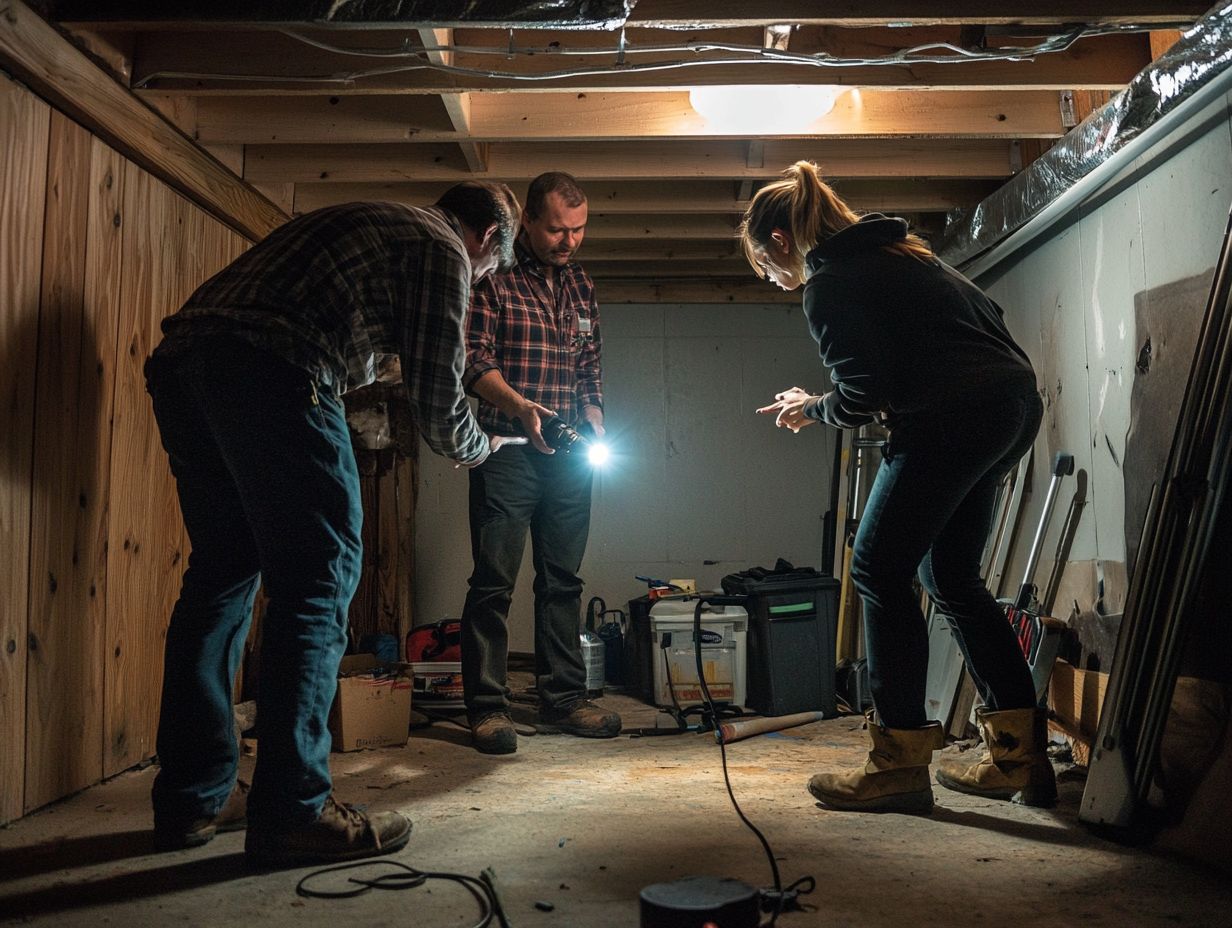
What is a home inspection and why is it important for buyers?
A home inspection is a thorough examination of a property’s condition, including its structure, systems, and components. Understanding the benefits of a home inspection is important for buyers because it can uncover potential issues or defects that may not be visible during a regular viewing, allowing them to make an informed decision about their purchase.
What are the benefits of getting a home inspection for buyers?
The benefits of getting a home inspection for buyers include:
- Peace of mind, as it can identify any potential problems with the property.
- Negotiating power, as the buyer can ask for repairs or a lower price based on the inspector’s findings.
- Protection from unexpected and costly repairs after purchasing the home.
Who typically pays for a home inspection?
In most cases, the buyer pays for the home inspection. However, some sellers may choose to have a pre-listing inspection done before putting their property on the market, in which case they would cover the cost.
What should buyers expect during a home inspection?
Buyers should expect a thorough examination of the property, both inside and outside, including:
- The structure,
- Roof,
- Plumbing,
- Electrical systems,
- Heating and cooling systems,
- Signs of water damage, mold, and pest infestations.
After the inspection, buyers will receive a detailed report outlining any issues found.
Can a home inspection uncover all potential problems with a property?
No, a home inspection cannot guarantee that every issue with a property will be uncovered. Inspectors are limited to what they can see and access, and some issues may not be apparent until after the buyer has moved in. However, understanding the importance of home inspections before buying can still help identify most major problems and give the buyer a better understanding of the property’s condition.
Is a home inspection necessary for new construction homes?
Yes, a home inspection is just as important for new construction homes as it is for older homes. Even newly built properties can have defects or issues that may not be visible to the untrained eye. It is always recommended for buyers to get a home inspection, regardless of the age of the property.
Need a home inspection? Contact us today to get started!

